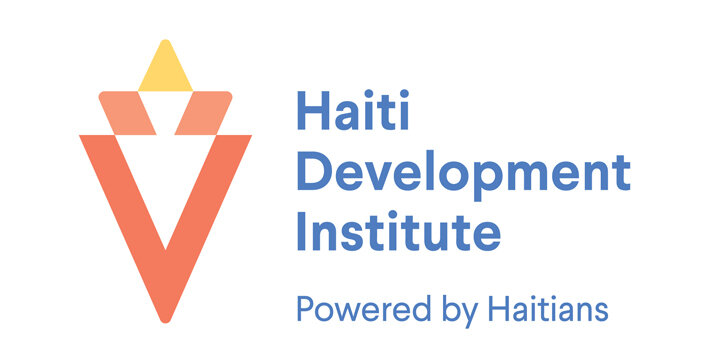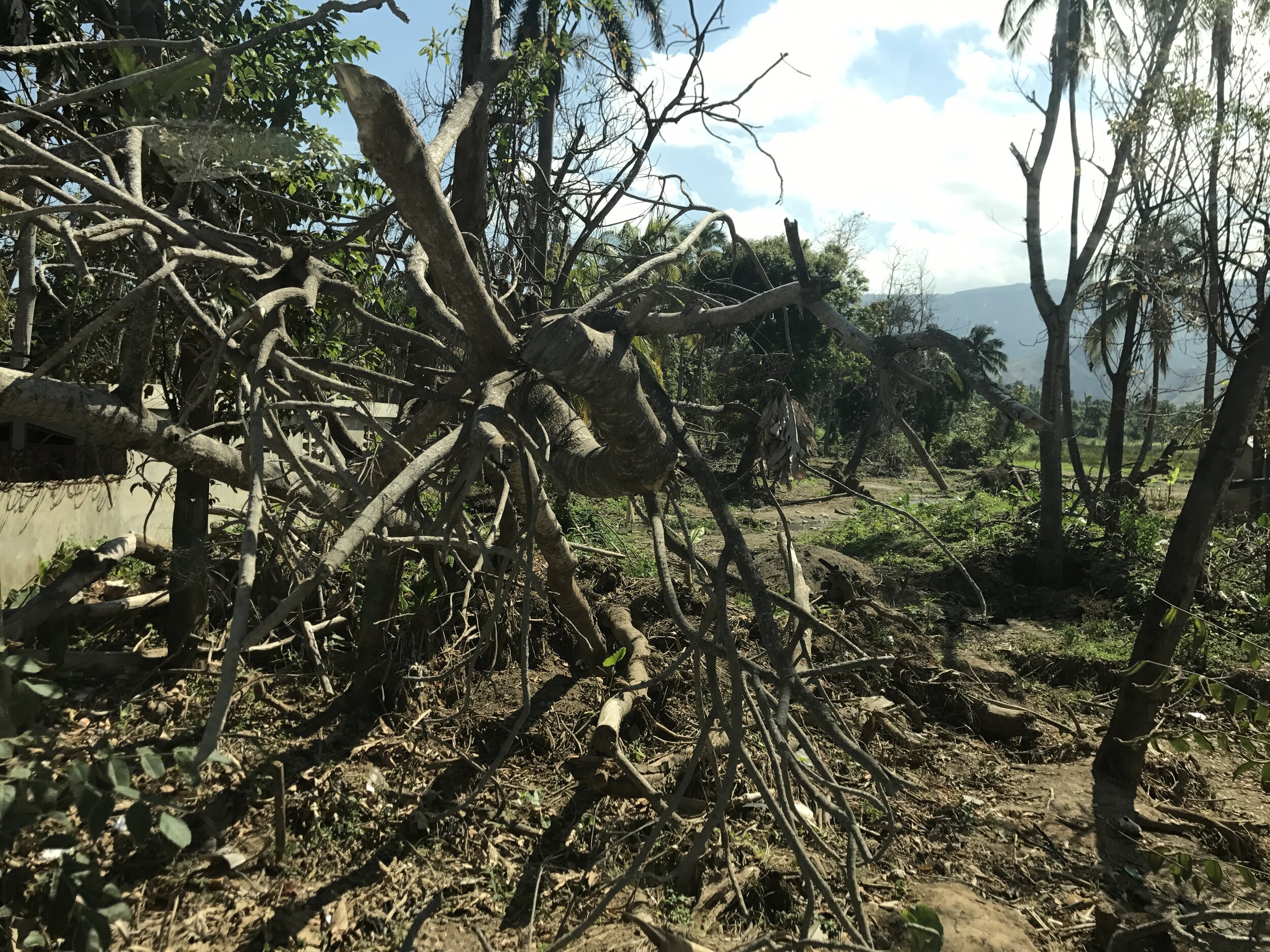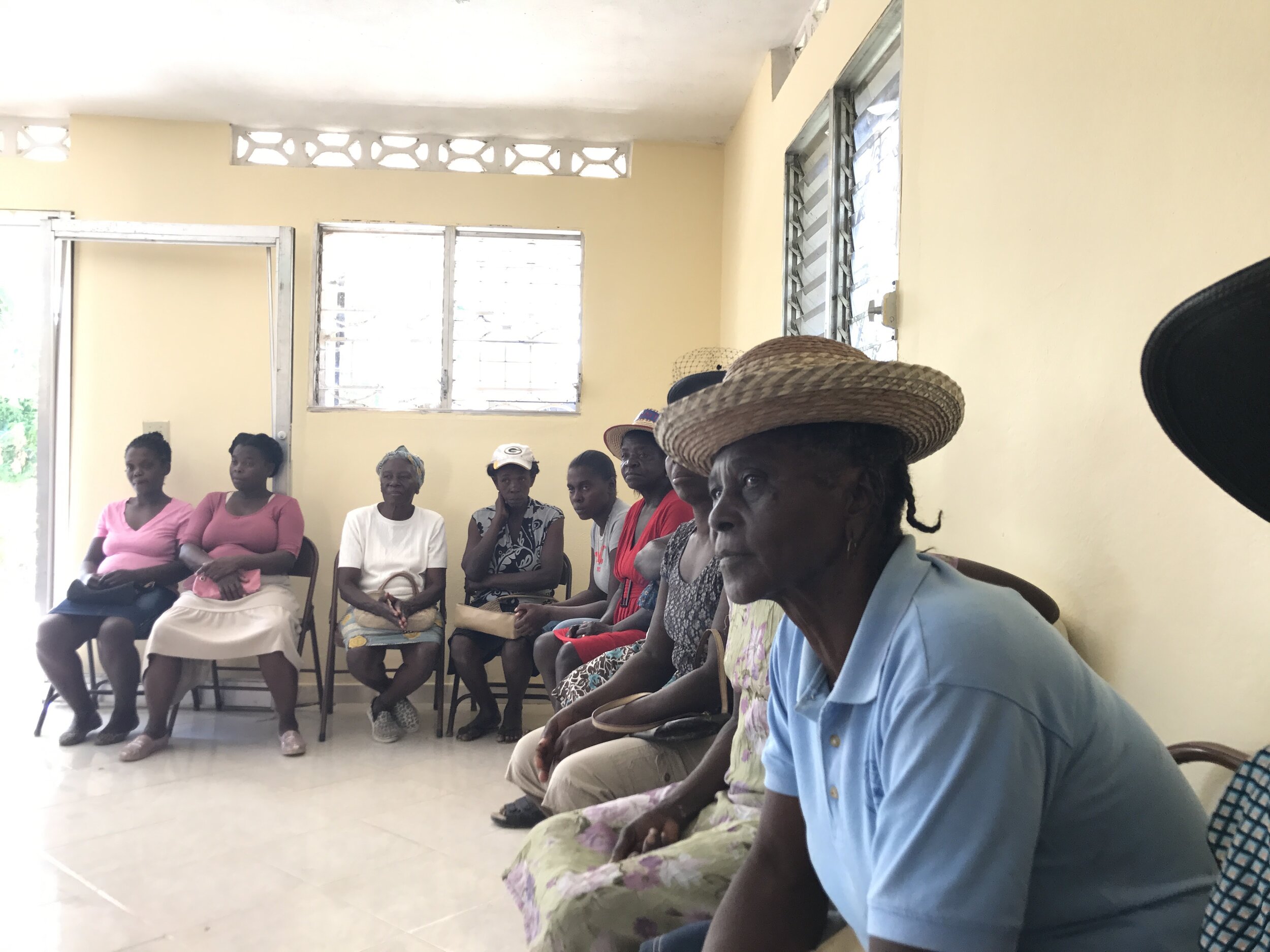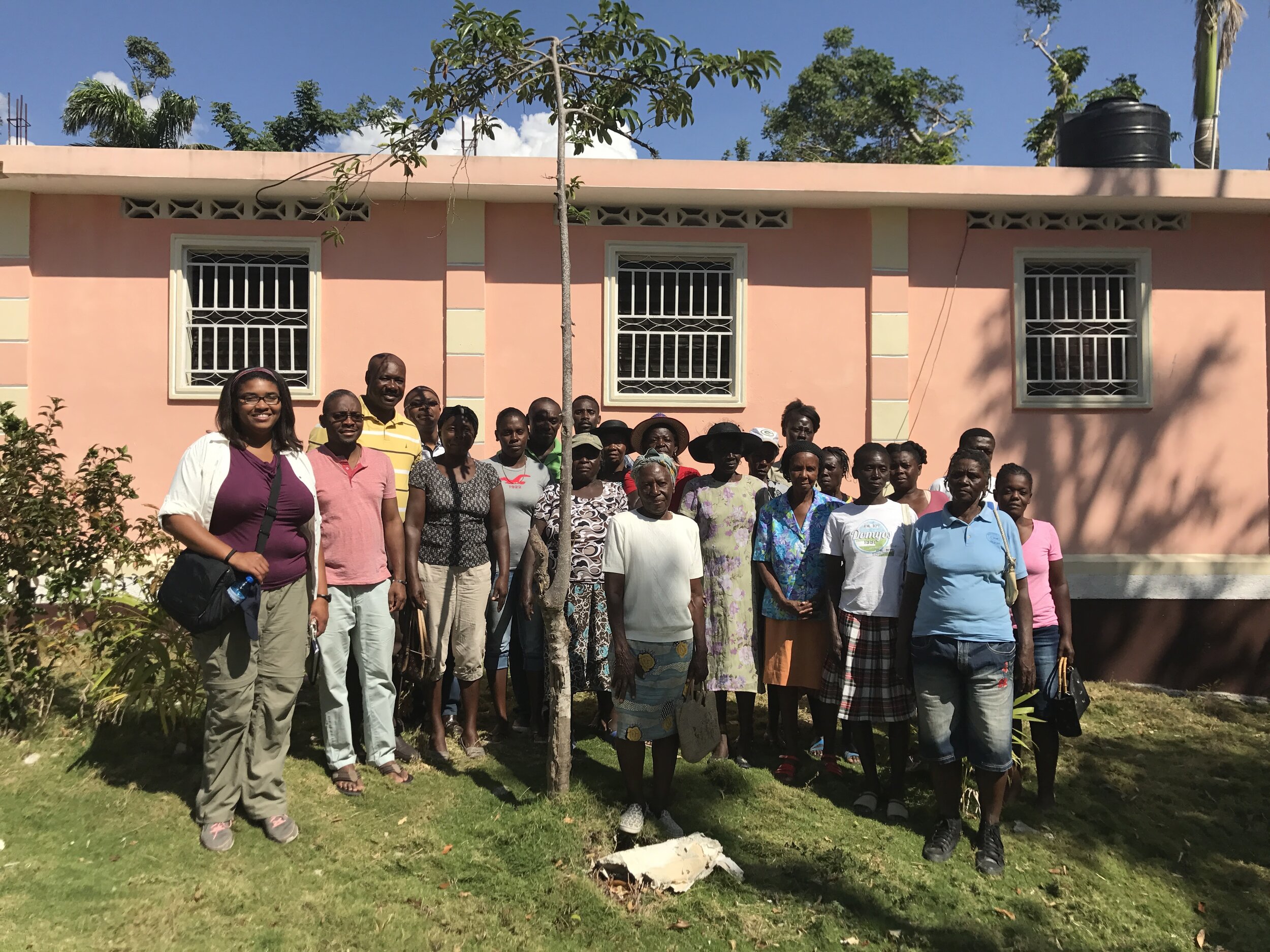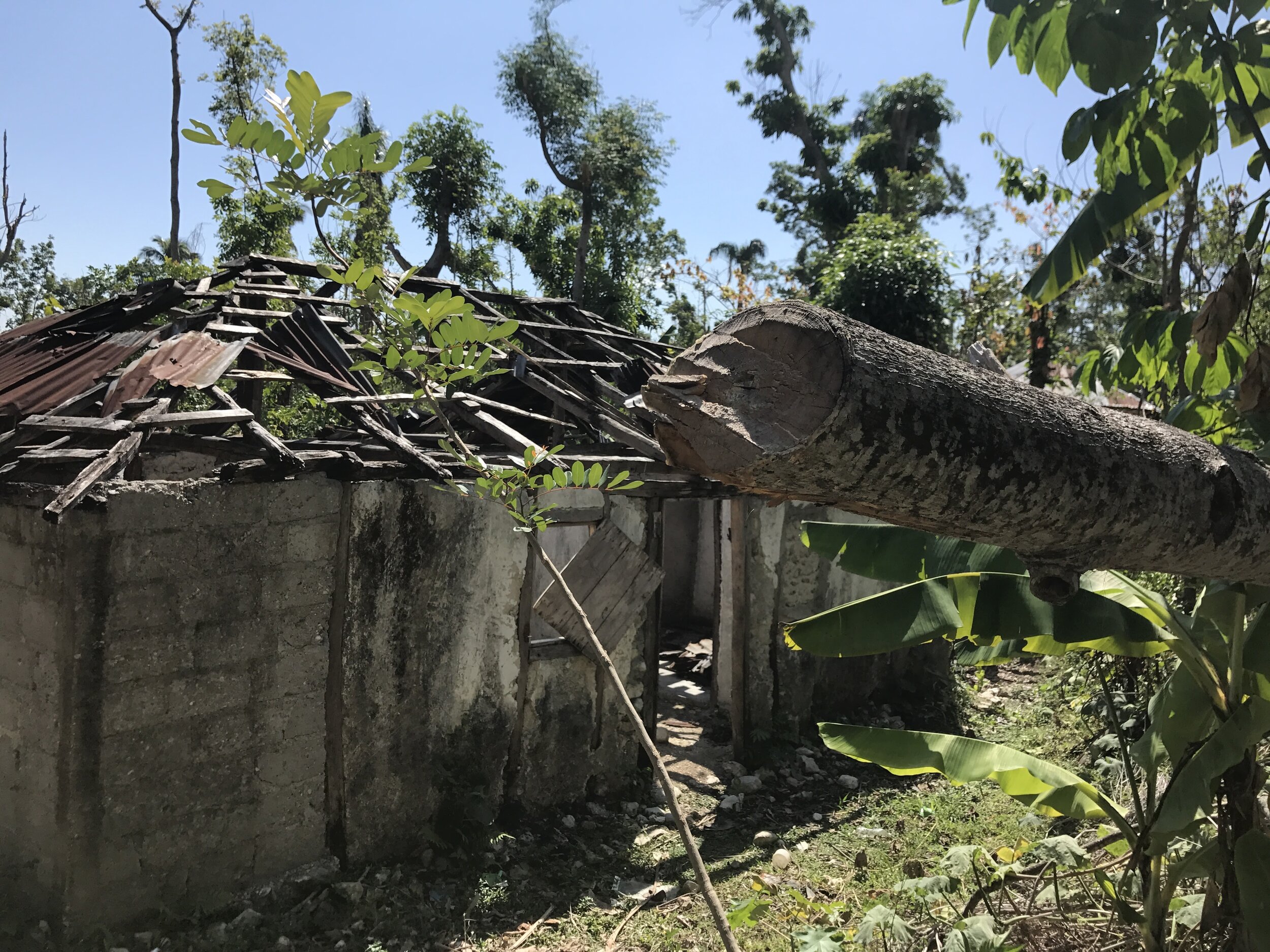HDI Visits Hurricane Matthew Relief Grantees with the Flora Family Foundation
HDI raised money to support the Southern Corridor following the devastation caused by Hurricane Matthew. From January 29-February 4, 2017, HDI staff and representatives of the Flora Family Foundation visited communities where HDI is administering relief grants. The hurricane severely destroyed fruit bearing trees, cattle, and agricultural fields, as well as rural infrastructure such as schools, irrigation canals, and micro-enterprises that support the livelihoods of hundreds of thousands of people, leaving the communities utterly devastated. It made a world of difference that HDI was able to use its connections on the ground to reach the organizations listed below and provide much-needed assistance in areas that would otherwise be left out. HDI dispersed $75,000 to the following organizations:
MP3K in Camp Perrin
KOFAKAD in Torbeck
GCHCLC in Cavaillon
OPAGMA in Maniche
ACAPE in Les Cayes
APPENIV in Ile A Vache
RAFANIP in Petite Rivière de Nippes
ODPN in Saint Louis du Sud
The consensus was that the site visits were “inspiring and depressing all at the same time.” We visited MP3K in Camp Perrin, KOFAKAD in Torbeck, OPAGMA in Maniche, ACAPE in Les Cayes, and RAFANIP in Petite Rivière de Nippes. We were privileged to be able to see the important work these organizations do, day in and day out, despite enormous obstacles.
Despite the months that have passed since Hurricane Matthew landed in the South in October 2016, one can immediately see and feel the devastating impact of the hurricane. There is little visual progress that can be seen. Houses and roofs remain torn apart, trees ripped from the ground, electrical lines and overall power remains down, and agricultural fields and livestock have yet to be replaced. Most people in the affected areas lost all productive assets and the means to begin to rebuild post-hurricane. We heard time and again that other than the little assistance we provided, people had access to few or no other services. Even those who were able to receive some assistance from the large NGOs noted that the government was noticeably absent. The lack of progress can be attributed to the lack of humanitarian funds and attention, particularly for reconstruction. We believe this lack is due to:
Donor fatigue following the earthquake appeals;
Perceived lack of transparency and accountability in use of donated funds following the earthquake, particularly with the stories about the American Red Cross’ involvement in Haiti;
Impact of Haitian elections that politicized the recovery effort and drove attention away from the South;
Impact of US election, which dominated the news cycle;
Lack of coordination and involvement of community organizations in Port-au-Prince coordination meetings.
The following are brief summaries of the missions and impact of grantee organizations responding to hurricane affected communities:
RAFANIP in Petite Rivière de Nippes: RAFANIP is a women’s group in a mountainous coastal community working on agriculture, micro-credit, and animal husbandry. They raise goats and cows and are trained veterinary technicians. They use this skill to monitor the health of their animals, and it also enables them to have a small source of revenue for their organization. Their office is situated along the coast, and as such suffered from severe flooding damage, with the water reaching about 3 feet high within their offices. All of their papers, files, and work were swept out to sea. They had to use buckets to bail out their office building. All of these women suffered from immense losses including housing, animals, and agricultural fields. They also mentioned that those who had used microcredit loans, as a way to grow their businesses or agricultural production before the Hurricane, received no relief on these loans. They were struggling to repay those loans as they had lost all of their productive assets. Our funds supplied to this group assisted seventy-four (74) women, who each received each a small zero interest loan of about $75 which made it possible for them to resume their commercial activities. The loan has a 10-month repayment term, and will be used to help other women when fully repaid
ACAPE in Les Cayes: ACAPE promotes and supports social enterprises, and works with thousands of peasants promoting agroecology, training, and food processing for increased income and livelihood. They are part of an agroecology network of organizations across the country. As you know, Les Cayes suffered heavily during the Hurricane and their community was no exception. However, their buildings remained intact, as one of their focuses is on sustainable construction. They use a flexible building material that can withstand natural disasters, and also take advantage of locally sourced building materials to minimize their carbon footprint. Their group has a number of initiatives that they focus on, including:
Integrating the natural sciences and the environment into youth education;
Support and training particularly for female entrepreneurs. This includes providing a market for their goods;
Agricultural training for smallholder farmers and support for budding social enterprises
Our funds supplied to this group assisted 200 families, particularly with income generating activities and primarily for female entrepreneurs, to help them rebuild their lives following the Hurricane.
MP3K in Camp Perrin: MP3K works with thousands of peasants promoting the environment, agricultural training, and health care in this remote community. They are part of the MPP agroecology network of organizations across the country. This area suffered heavily in the passage of Hurricane Matthew, which included their offices. Their clinic and office was used to shelter, feed, and house many families for weeks after the hurricane. MP3K is located on one of the tallest mountains in Haiti and to access their community you must cross a river, cutting them off from support from larger communities and services such as schools, hospitals, and food distribution networks. They also offer purified drinking water and sustainable and consistent energy access to their community. Following the hurricane, they were able to provide small loans to beneficiaries through their microcredit program for immediate relief. They used some of our funding to repair the roofs for the most vulnerable families in their community, among other activities.
KOFAKAD in Torbeck: KOFAKAD is a women’s group on the outskirts of rice fields. They provide vocational training to young women, agricultural support and training, and generate income for their community activities from a grinding mill, which we helped finance. The school was used as a shelter for many families after the hurricane. This community is also quite remote and cut off from the localities where many of international nonprofits concentrated their funding. As many of their members are located in the mountains, they were not able to hear from many of them for quite some time. One interesting thing that this group did post-hurricane was offer pen and paper to their members and their families as a way to express their feelings through drawing. It offered the community the opportunity to express the extreme loss they felt in a productive way, as most are not literate. The processed grain from the grinding mill provided them with a quick way to get funds immediately following the hurricane, so that they could provide food and water to their members and families. Our funds supplied to this group helped to repair the roofs and houses for the most vulnerable, and to get the grinding mill back up and running. They are also looking to restart an adult education program and will begin to offer more of their vocational training programs again including cooking, sewing, and others.
OPAGMA in Maniche: OPAGMA advocates for and works with hundreds of peasants promoting environmental sustainability, agriculture, healthcare, and rural livelihoods in this remote community. Their clinic and offices were used to shelter many families for weeks after the hurricane. OPAGMA runs a health clinic for the community members, which is staffed by the Ministry of Health (nurses and doctors). This clinic is vital to this community, as like MP3K, they are also cut off from larger communities due to a large river. Like many communities, they still do not have electricity, but are hopeful that it will come by this summer. This means that their medications and vaccines have to be stored at another clinic. They are hoping to build a maternity ward in the coming year as they have the supplies and expertise necessary. They had three goals post-hurricane, including: 1) repairing the office and clinic; 2) repairing the energy system; and 3) technical assistance to farmers and others to help with income generating activities. Similar to the stories we heard from other organizations, people lost everything including animals, houses, and productive assets for income generating activities.
For more information you can visit UN OCHA’s website
UN: The Haiti Flash Appeal launched on 10 October 2016 has received to date US$88.9 million of the US$139 million requested, which represents a funding level of 63.9 percent. The purpose of the Flash Appeal was to adequately support the Government of Haiti to meet the most urgent humanitarian needs of up to 806,000 affected people.
Latest Statistics on accomplishments and current needs can be found here.
